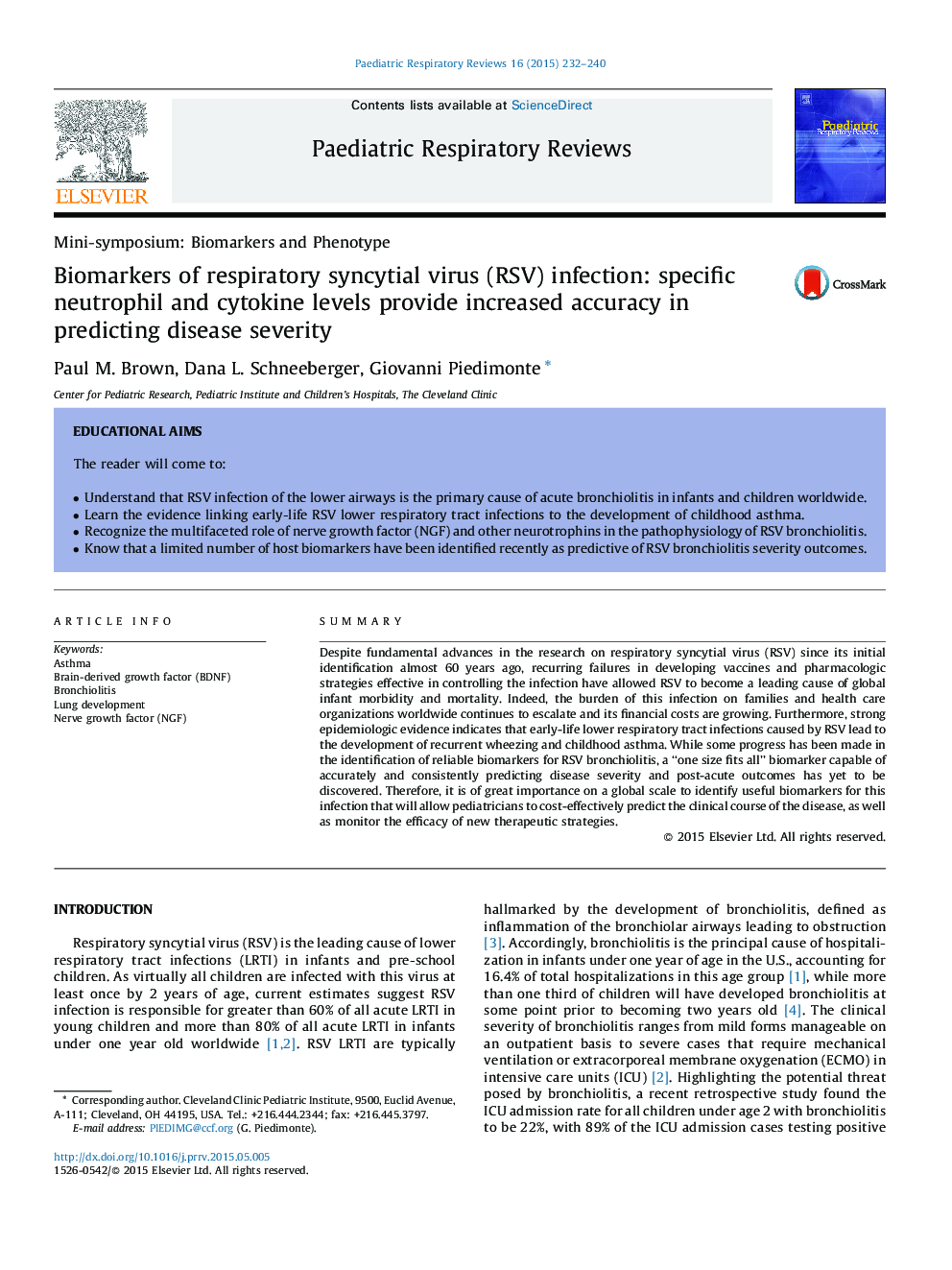| Article ID | Journal | Published Year | Pages | File Type |
|---|---|---|---|---|
| 6225984 | Paediatric Respiratory Reviews | 2015 | 9 Pages |
SummaryDespite fundamental advances in the research on respiratory syncytial virus (RSV) since its initial identification almost 60 years ago, recurring failures in developing vaccines and pharmacologic strategies effective in controlling the infection have allowed RSV to become a leading cause of global infant morbidity and mortality. Indeed, the burden of this infection on families and health care organizations worldwide continues to escalate and its financial costs are growing. Furthermore, strong epidemiologic evidence indicates that early-life lower respiratory tract infections caused by RSV lead to the development of recurrent wheezing and childhood asthma. While some progress has been made in the identification of reliable biomarkers for RSV bronchiolitis, a “one size fits all” biomarker capable of accurately and consistently predicting disease severity and post-acute outcomes has yet to be discovered. Therefore, it is of great importance on a global scale to identify useful biomarkers for this infection that will allow pediatricians to cost-effectively predict the clinical course of the disease, as well as monitor the efficacy of new therapeutic strategies.
